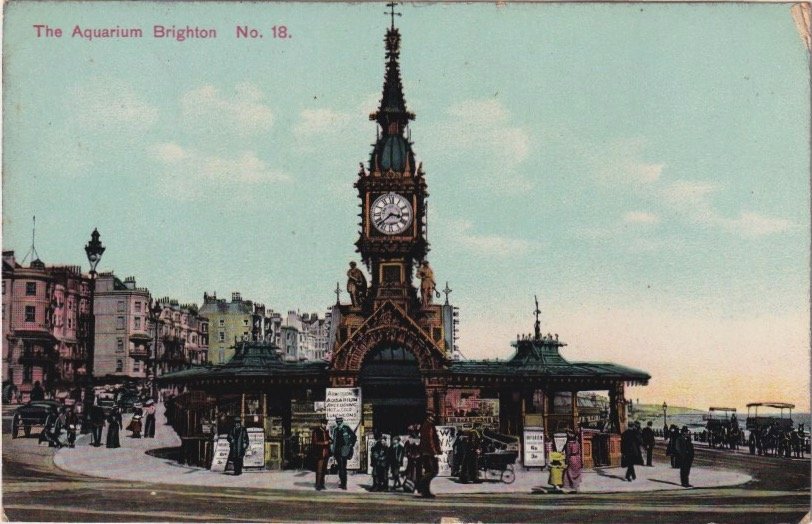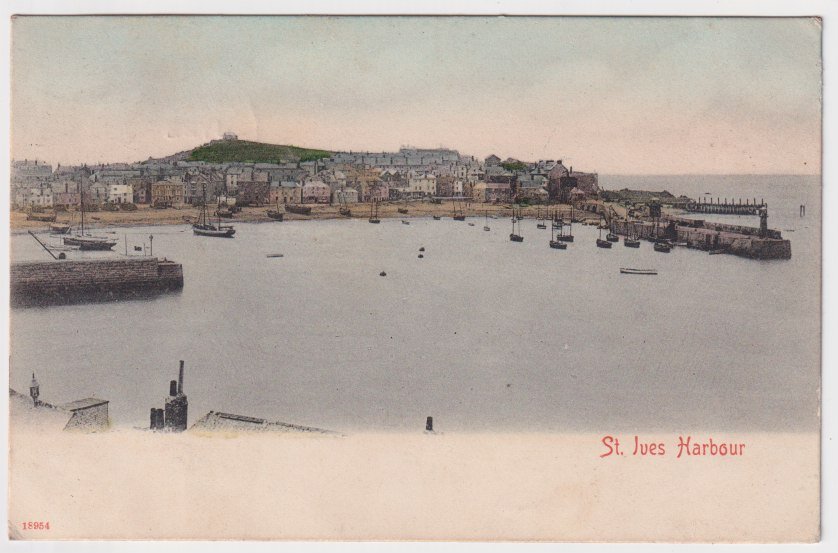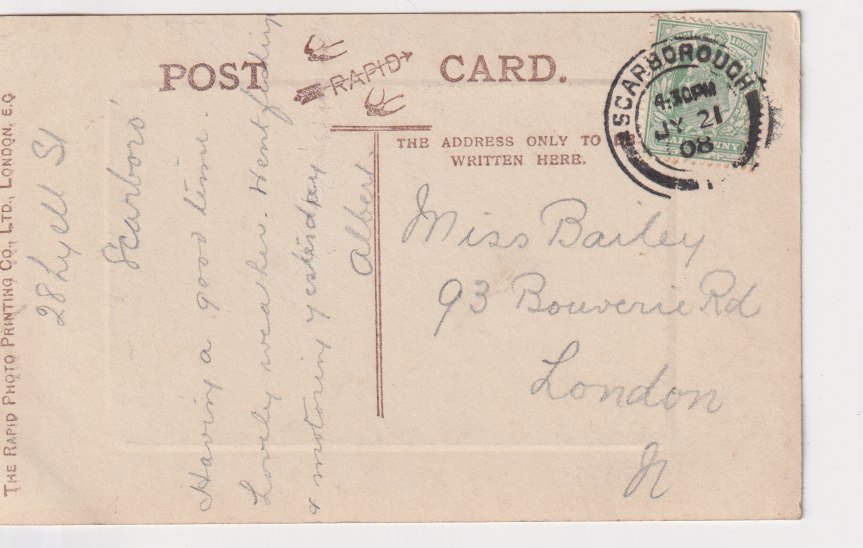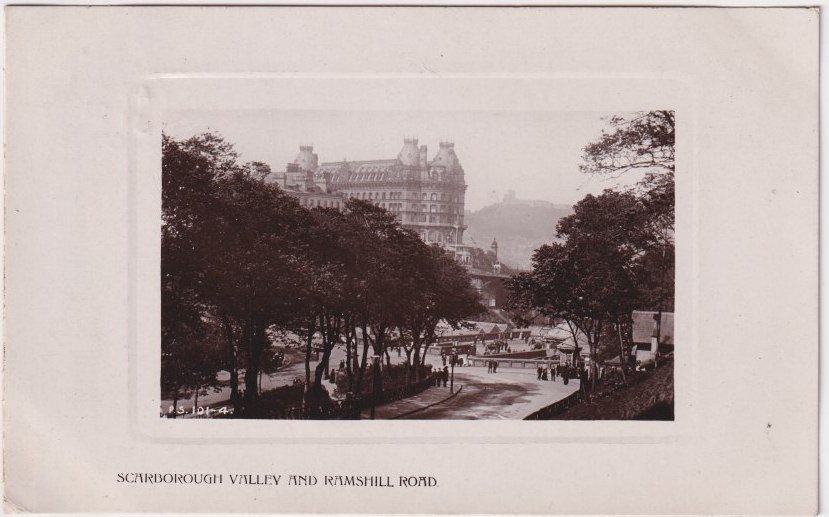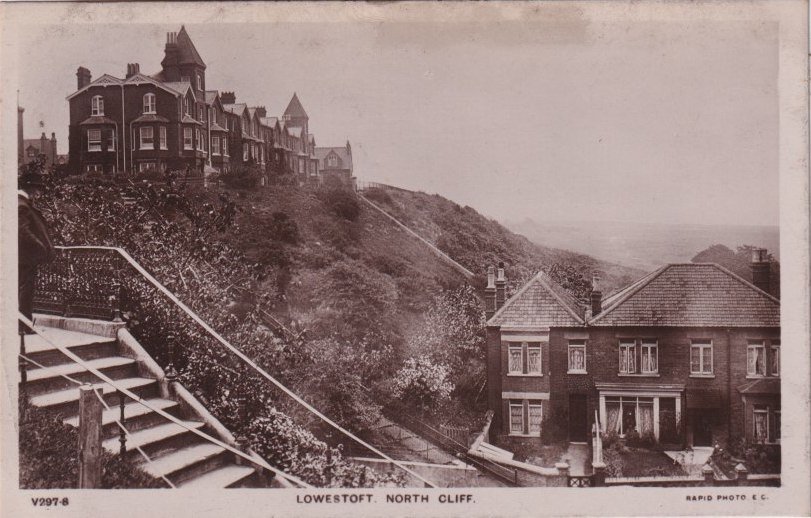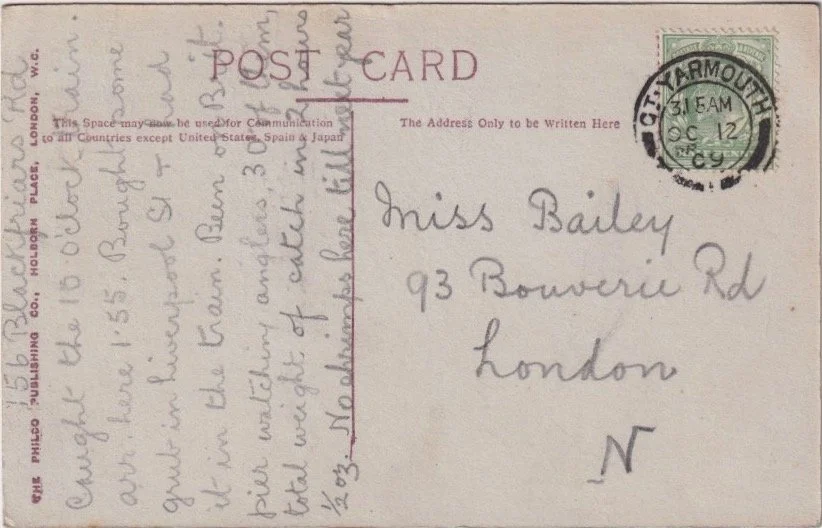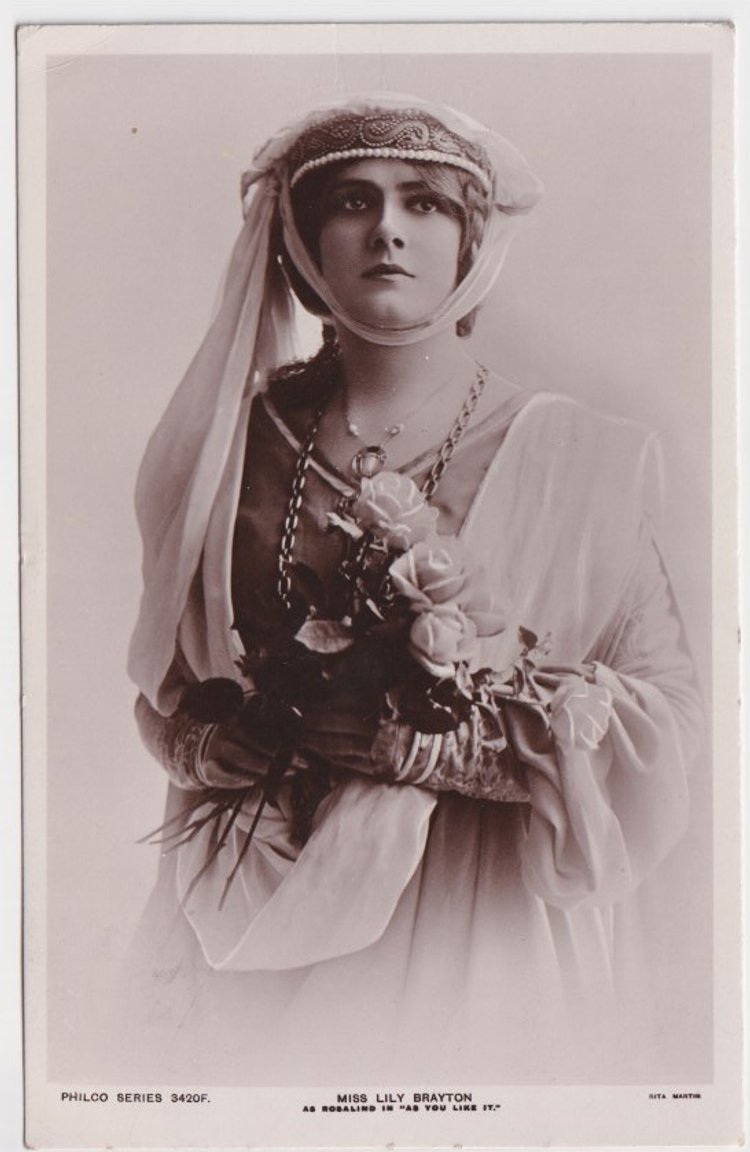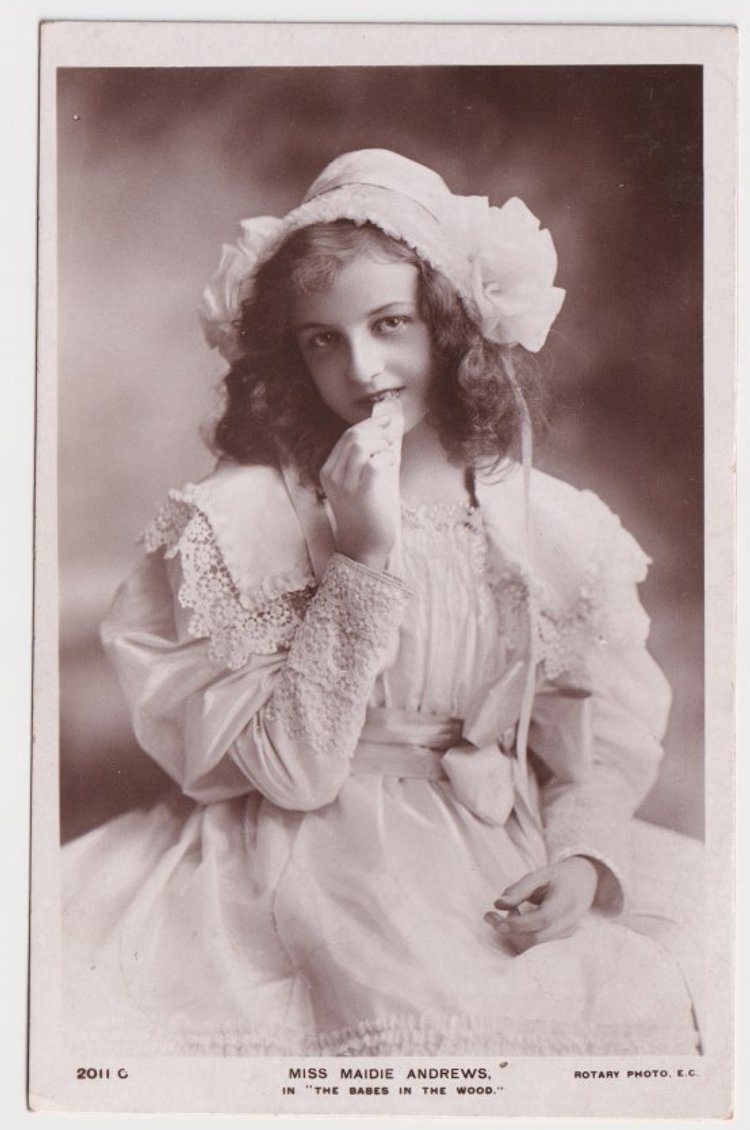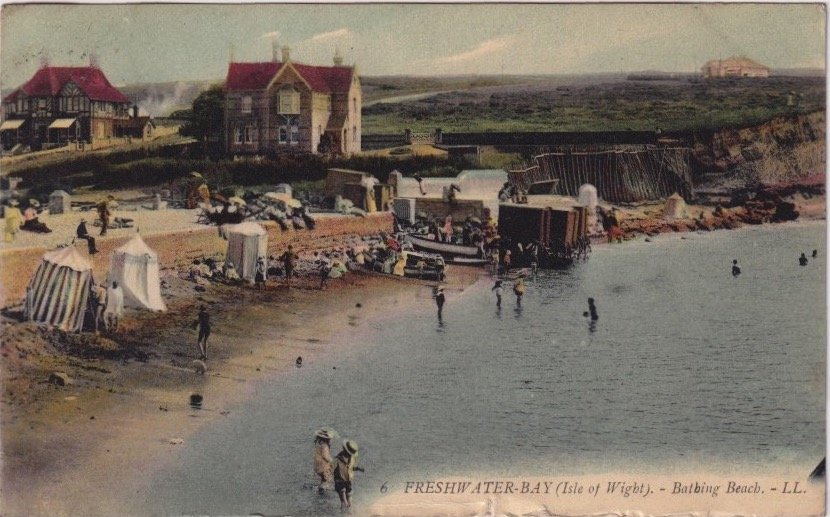
These are our favourite seaside holidays, say young Edwardians
A wonderful collection of postcards belonging to an ordinary North London family tell the story of breezy, no-frills holidays in the early 20th century
At the start of the 20th century, when British seaside resorts were fresh, exciting and easily reached by steam trains, the postcard captured the thrill of a holiday.
With telephones not common until the 1930s, this was the way friends and family kept in touch. Postcards were easy to buy and cheap to use - stamps cost a halfpenny - and there were multiple deliveries a day. Sending, receiving and collecting postcards became a craze - by 1910, more than 800 million were being sent out each year.
The postcards below were collected by Ethel Bailey, a young Londoner from Stoke Newington who was born in 1888. They were sent home by Ethel, her older brothers, sister and cousin, who were all discovering the fun and freedom of travelling around the country as independent adults.
The trendy resort: Brighton
In 1904, Edward VII was on the throne and Brighton in East Sussex reigned as southern England’s most fashionable seaside resort. Nicknamed London-upon-Sea and easily reached by steam train, it was the obvious choice for 17-year-old machinist Ethel Bailey’s first ‘grown-up’ holiday with friends in 1904. She sends a postcard to her older sister Emily showing The Aquarium, which hosted hyper-fashionable roller-skating and ‘mermaid’ exhibits as well as marine life. Her no-nonsense message shows the practicality of early postcards, which were delivered multiple times a day: “Dear Em, Coming home by first train. Tell Mum to have my dinner ready about 12.30 I think. Yours Ethel.”
The quirky tourist attraction: Weymouth
The transportation of English convicts to Australia ended in 1868. But a grim history lesson lies in wait for Emily Bailey, 20, who in 1905 is holidaying with her cousin Ada in the genteel Georgian resort of Weymouth, Dorset. An Australian prison ship - ‘the only one left’ with ‘a wonderful interior’ - has been docked in the harbour as an unlikely tourist attraction. The cousins can’t resist a tour but are shaken, Emily says: “Just been over this ship & feel very frightened. It gave us the horrors. Em”.
The walking holiday: Cornwall
While the girls holiday in resorts, their brothers are much freer, and roam coast and countryside by train and bike or on foot. In 1905, Alf Bailey, 25, who works as a bank clerk, is walking in Cornwall. These days, the harbour town of St Ives is regarded as one of England most desirable destinations, but then it made a less favourable impression. He writes to Emily: “Sorry I could not get a better PC [postcard]. We intended stopping at Redruth tonight but it was such a dirty place, full of mines, that we decided to push on to this place. It is very dull & misty here, quite a contrast to yesterday’s heat.”
It’s grand up north: Scarborough
The opening of Scarborough’s Grand Hotel - the largest hotel in Europe, offering spa-style seawater baths in every en suite - attracted Londoners up to the Yorkshire coast by steam train. The 12-storey building was such a landmark that 32-year-old Albert Bailey, who works as a tea merchant’s clerk in the East End, chooses a postcard that features it even though he is staying in a humble boarding house. In the summer of 1908 he writes: “Having a good time. Lovely weather. Went fishing and motoring yesterday. Albert.” Hiring a motor car for a spin along the coast - travelling at speeds of up to 20mph! - was a fashionable holiday pastime.
The cycling adventure: Essex and Suffolk
In 1908, the youngest Bailey sibling Ted celebrates his 18th birthday by cycling alone from North London to the East Coast, a distance of 130-plus miles. On the eve of his coming-of-age, he sends an update of his journey - and disintegrating schedule - to his mother from Brentwood in Essex, then a small, peaceful town: “Dear mum, arrived Ilford 8.50 - 10 minutes late: arrived here 15 minutes late. The wind is blowing very strong against me but I am feeling allright. Ted. This was written in my saddle.”
It’s 9.30am on July 2 1908, Ted’s 18th birthday, and he has reached the sea at the prosperous fishing town of Lowestoft in Suffolk. He writes cockily to his oldest sister: “Dear Em, Tell mother to send my things when she gets my card from Yarmouth and when you write tell me how many presents I have had. Ted.”
All the fun of the pier: Portsmouth
More than 100 pleasure piers stretched over the waves from England’s seaside proms in the early 20th century. In July 1908, Cousin Ada sends a postcard of chic new South Parade Pier at Southsea, Portsmouth. Built to replace an earlier version that was destroyed by fire, it holds a 1,200-seat theatre for variety shows, and hosts band concerts and roller-skating. It also has wind shields to protect holidaymakers from unseasonal weather. Ada writes ruefully: “We are getting such dreadful weather, the wind is fearful and the rain coming down in torrents. There are plenty of concerts going on. We have a nice room. Love to all. From Ada.”
The girls’ getaway: Herne Bay
Paddle steamers travelled from London to Herne Bay, Kent’s sunniest resort, making it a fun jaunt for a gang of friends. Clambering down the gangplank at the end of the pier, holidaymakers reached the prom by electric tram, passing the singing pierrot troupes and stalls selling cockles, whelks and seaside rock (which had been invented just 10 years earlier). Ethel visits in August 1909 and writes home as soon as she reaches her boarding house: “Dear Mum, Arrived quite safe. In room with Bessie and Daisy. Think I shall like it very much. Am going to send my bag home by Carter as my hand is blistered with carrying it. Love to all, your loving daughter, Ethel”.
The resort for all seasons: Great Yarmouth
In the summer of 1909, Emily is living it up in Great Yarmouth. Norfolk’s number-one resort was a favourite of the Bailey siblings, who visit separately and always send a box of bloaters [ungutted smoked herring] to their mother when they visit. She writes to her little sister: “Dear E, What is the weather like in London, it is very cold & showery here, it was lovely yesterday though, I got burnt up. It is the regatta today, going to have fireworks on the pier tonight, just going to have a look at the fun. Em.
One day, two postcards: Great Yarmouth
Albert makes an autumn trip in October of the same year, and describes his daytime activities to Emily: “Caught the 10 o’clock train. Arrived here 1.55. Bought some grub in Liverpool St & had it on the train. Been on Brit Pier watching anglers, 30 of them, total weight of catch in 2 hours 1/2oz. No shrimps here til next year.” It was the style to send postcards of popular actors; Albert’s choice is Shakespearian actress Lily Brayton.
A few hours later on the same day, Albert is contemplating his evening’s entertainment. He writes: “There are only three shows going this week. The Gem [a cinema/theatre that dictates men and women sit on separate sides of the auditorium], Hippodrome [a permanent circus] & H.L.A.T.H. at The Aquarium [a theatre with a display of fish tanks on the ground floor]. Roller skating, Winter Gardens, Scenic Ry [scenic railway] still going. Just off to The Gem.” This postcard shows Maidie Andrews, a child actor who has recently toured England in a production of Peter Pan.
The characterful pub lunch: the Isle of Portland
In August 1910, Alf is on the Dorset coast and stops for lunch at a startling (unofficial) visitor attraction: Portland Prison, where convicts quarry Portland stone under hard labour conditions. Tourists clamber up on the hillside to watch shaven-headed prisoners toil in the summer heat. And nearby home owners set up cafes and pubs on their upper storeys in order to offer views of the stone-dressing yard. Alf writes to his mother: “Went here today and saw the poor devils at work from the window of a pub overlooking the wall. Alf”
The chill out: the Isle of Wight
Even in the heydey of the English seaside, the simplest resorts could be the most charming. Ethel finds beach bliss on Queen Victoria’s favourite holiday island. Her postcard of west-coast Freshwater Bay shows a rustic crescent of sand with a sprinkling of bathing huts for respectable swimming. She writes to her sister: “Dear Emily, Simply lovely here. You would love it. Love, Ethel.”

